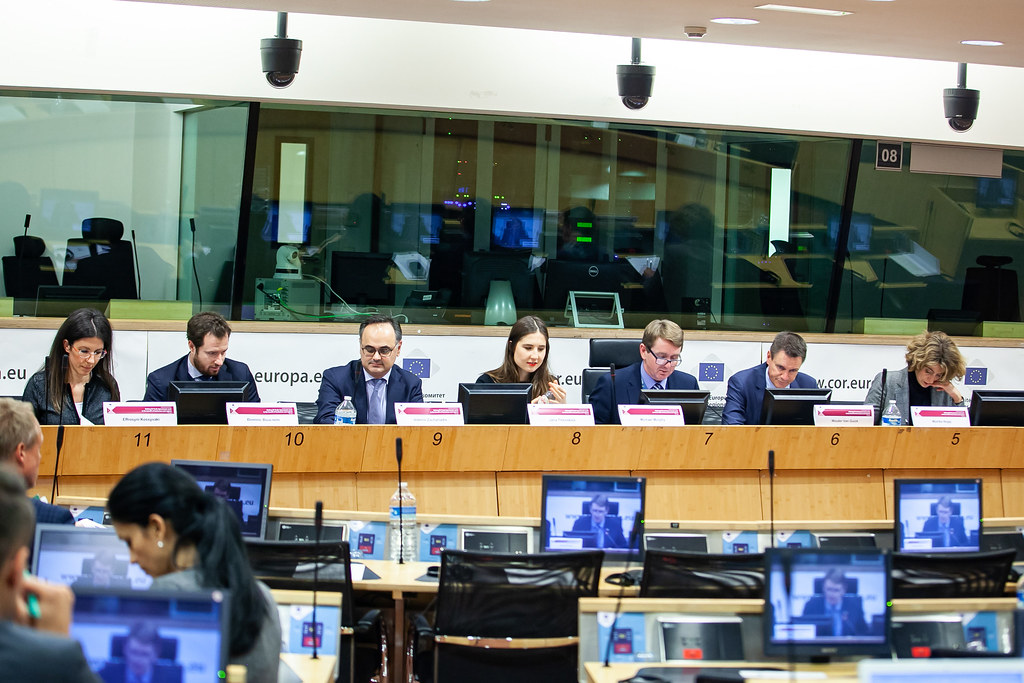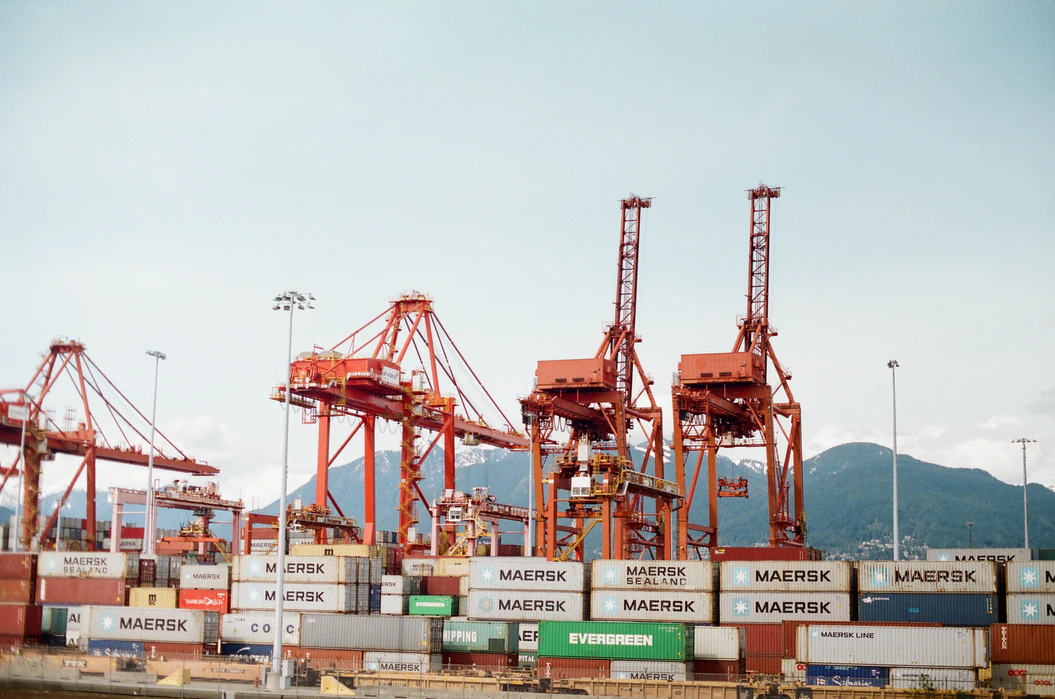
Written by Antoine Latran
Last month, in my first column dedicated to the power of the European Union in trade policy, I detailed how the EU used its Common Commercial Policy to diffuse the norms and regulations it hopes to promote. This month, I will look into the role of the European Parliament in this process. The only directly elected European institution became a major actor of European Trade Policy with the Treaty of Lisbon (2009), after decades of extremely limited power in this policy-making area.
Introduction
To fight against an increasing perception of a democratic deficit within the European Union, the EU decided to increase the power of the European Parliament, the only institution directly elected by its citizens. From the Maastricht Treaty in 1992, which introduced the co-decision procedure, to the Amsterdam and Nice treaties, the EP experienced a sharp increase of power. Indeed, the European Parliament is often considered as an actor seeking a greater role for the European citizenry, to “bring Europe closer to its citizens” (1).
However, trade policy remained far from parliamentary scrutiny, with the Member States preferring to discuss this policy area behind closed doors, “with a conscious decision to keep the EP out of trade policy”, notably to avoid protectionism (2).
In 2009, the Lisbon Treaty put an end to this “anachronism” (3) and provided the European Parliament with an increase of formal power in the trade policy decision-making.
The EP gain of formal power with the Treaty of Lisbon
The Lisbon Treaty entered into force in 2009 and assigned two significant roles to the EP in trade policy (3). Firstly, with Article 218, the Treaty placed the Common Commercial Policy of the EU under the standards of the Ordinary Legislative Procedure (or OLP, the co-decision procedure’s new name), which means that the EP is now a co-legislator in this field, along with the Council, and that international agreements require its consent (4). Secondly, Article 207(3) provides that the Commission must report on international negotiations to the Trade Policy Committee (of the Council) and to the INTA Committee, the EP group for trade policies (4.). The two committees are indicated to be treated equally, with the right to receive reports, indication and information, and are both ensured the same level of knowledge, which was not the case before the Treaty. These articles have had a considerable influence on the EP’s powers, as it previously could not reject an agreement. The Commission used to proceed to all the negotiations with a mandate from the Council and the latter concluded the agreement, while the EP was only solicited if the treaties discussed created new institutional frameworks (3).
The Lisbon Treaty brought a surge in transparency in the decision-making of trade policies, which advocators of the democratic deficit argued the EU lacked (5). Indeed, the INTA Committee meets in public and its members let their positions on negotiations be known, as opposed to the Trade Policy Committee (although, the INTA has a strong interest in keeping some aspects of the negotiations secret, in order to be able to maintain discussions with the Commission) (3). Through this balance of power between the Parliament and the Council, the Lisbon Treaty puts trade policy on a “stable democratic footing” while ensuring the needed freedom and flexibility to negotiate with a third party (6). “No one can now claim that the EU trade policymaking is a bureaucrat to bureaucrat exercise, devoid of scrutiny and passion”, summed up Karel de Gucht, the Trade Commissioner at the time (7).
The Informal Power of Influence
As the European Parliament gained the formal power of accepting or refusing international trade agreements with the Lisbon Treaty, the Commission understood it needed to involve the EP earlier in the negotiations process: “the rejection of an agreement in which the Parliament has actively participated at the negotiations stage is most unlikely” (3). Thus, the EP sets through non-binding resolutions some “redlines” before the negotiations start between the EU and a third party (8). Throughout the negotiations, the EP voices its opinion with resolutions and has the power to invite the Commissioner for Trade to sit in the INTA Committee to discuss recent developments (8). In addition to these formal powers, the EP has also gained informal powers through the Lisbon Treaty.
Before the Lisbon Treaty, Member States could use the threat of not ratifying the agreement to influence the negotiations held by the Commission. With the Lisbon Treaty, the Council still controls the Commission ex-ante (during the agenda-setting stage) and ad locum (at the negotiations stage). However, the control ex-post (during the ratification stage) is now done conjointly with the European Parliament. Indeed, the institution has gained a consent procedure with the Treaty and despite only being involved ex-post, the institution “casts a shadow on the entire process” (9).
A good demonstration of this informal influence has been the SWIFT Agreement, negotiated between the EU and the US to allow bank data transfers. It was the first agreement to be denied by the European Parliament, as it just received its consent power with the Lisbon Treaty before a second agreement was accepted in 2010. The first refusal came as the Council believed that the European Parliament would only exert ex-post control on the agent, the Commission, and therefore, the ratification would be a “formality” (9). But the European Parliament saw their new powers as a possibility to influence the outcome of the negotiation stage and made it clear it would only accept an agreement with higher levels of data protection before refusing to ratify it (10). Thus, in the second round of negotiations, the MEPs’ willingness to have their say led the Commission to include them in early talks, before the mandate was in the hands of the Council, and the MEPs gained control ex-ante, despite the Council’s ‘formal’ exclusivity on that part. Moreover, the European Parliament gained ad locum control when the Council became more open to their propositions and backed them up in the negotiations stage (9). Finally, the European Parliament even bypassed the exclusive right held by the Commission to talk with the third party, as key MEPs met US representatives (11). The SWIFT Agreement, therefore, showcases how a ‘formal’ ex-post control led to influence over the Commission during the entire process. The European Parliament became an informal power, competing with the Council, in international agreements – including trade ones (9), acting on behalf of the European people at every single stage of such agreements.
Conclusion
The Lisbon Treaty has brought a surge in the democratisation of the European Union Trade Policies. As covered in this column, an enhanced role of the European Parliament in trade policy is a key factor for a lesser democratic deficit, which means democratisation of the policy area. The Lisbon Treaty, through Articles 207(3) and 218, gives the Parliament and its INTA Committee two formal powers, notably the use of the Ordinary Legislative Procedure for international agreements. As showcased with the example of the SWIFT agreement, this formal gain of power has led to an informal influence on the entire process of trade policymaking; not just in the ratification stage, as it was planned, but also on the agenda-setting and the negotiations stages. The European Parliament often described as the chamber of European values and the voice of its citizens (8), now plays a central role in trade policy which cannot be described as a bureaucrat to bureaucrat approach (7).
References
1 – Burns, C., 2016. The European Parliament. In: Cini, M. and Pére-Solorzano Borragan, N., eds. European Union Politics. 5th Edition. Oxford: Oxford University Press.
2 – Woolcock, S., 2010. The Treaty of Lisbon and the European Union as an actor in international trade. ECIPE Working Paper. 1(2010). Brussels: European Centre for International Political Economy (ECIPE).
3 – Krajewski, M., 2013. New Functions and New Powers for the European Parliament: Assessing the Changes of the Common Commercial Policy from the Perspective of Democratic Legitimacy. In: Bungenberg, M. and Herrmann, C., eds. Common Commercial Policy after Lisbon European Yearbook of International Economic Law. Berlin: Springer.
4 – European Union, 2007. Treaty of Lisbon Amending the Treaty on European Union and the Treaty Establishing the European Community. Available at: https://www.refworld.org/docid/476258d32.html [accessed 30 March 2020]
5 – Hix, S. and Hoyland, B., 2011. The Political System of the European Union. 3rd Edition. London: Palgrave Macmillan.
6 – Quisthoudt-Rowohl, G., 2013. Trade Policy under the Treaty of Lisbon. In: Bungenberg, M. and Herrmann, C., eds. Common Commercial Policy after Lisbon European Yearbook of International Economic Law. Berlin: Springer.
7 – De Gucht, K., 2010. The Implications of the Lisbon Treaty for EU Trade Policy. S&D seminar on EU Trade Policy, Oporto.
8 – Yan, S., 2015. The European Parliament’s Role in EU Trade Policy after Lisbon: Analysis from an Actorness Approach. Pademia: Parliamentary Democracy in European, European Commission.
9 – Ripoll Servent, A., 2014. The role of the European Parliament in international negotiations after Lisbon. Journal of European Public Policy, 21(4), pp. 568-586.
10 – European Parliament, 2009. Resolution of 17 September 2009 on the envisaged international agreement to make available to the United States Treasury Department financial payment messaging data to prevent and combat terrorism and terrorist financing. P7_TA(2009)0016.
11 – 2010. EU, US re-assess SWIFT data-sharing deal, Euractiv [Online]. Available at http://www.euractiv.com/en/financial-services/meps-washington-collapsed-datasharing-deal-news-355141 [accessed 28 March 2020].

 The Protection of Muslim Women ‘freedom of religion’ in the Workplace
The Protection of Muslim Women ‘freedom of religion’ in the Workplace  The stagnation of Europe’s largest economy: What is preventing the German Economic Model from growing?
The stagnation of Europe’s largest economy: What is preventing the German Economic Model from growing?  LGBTQ+ Rights as a Geopolitical Weapon
LGBTQ+ Rights as a Geopolitical Weapon  Tunisian olive oil in a globalised world. Export relations with the EU
Tunisian olive oil in a globalised world. Export relations with the EU 


